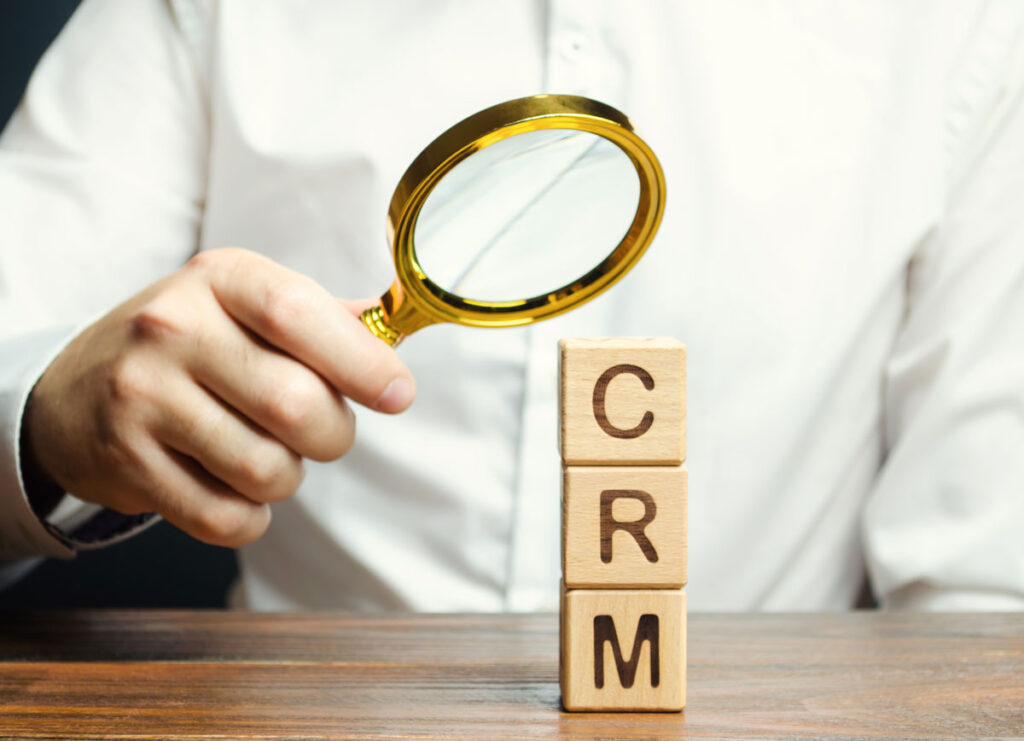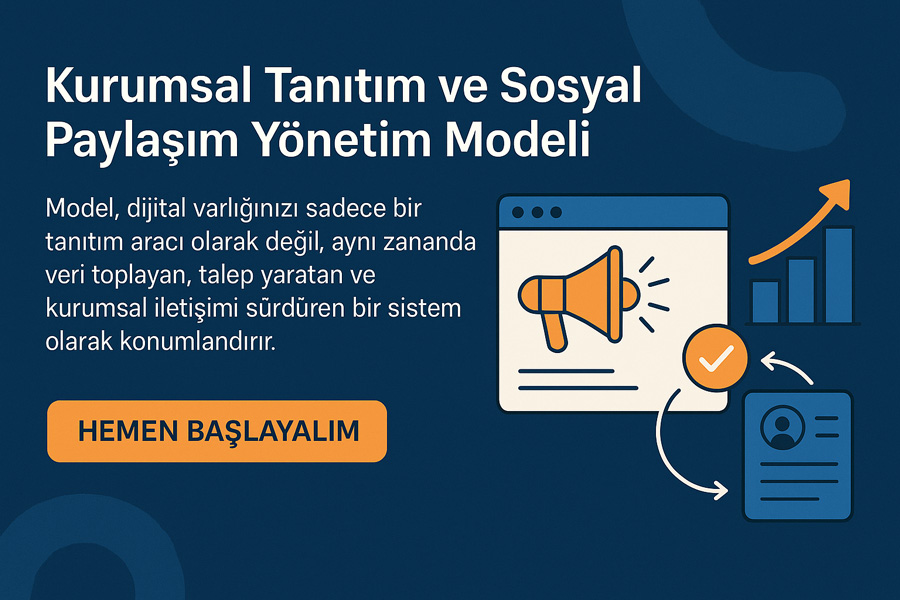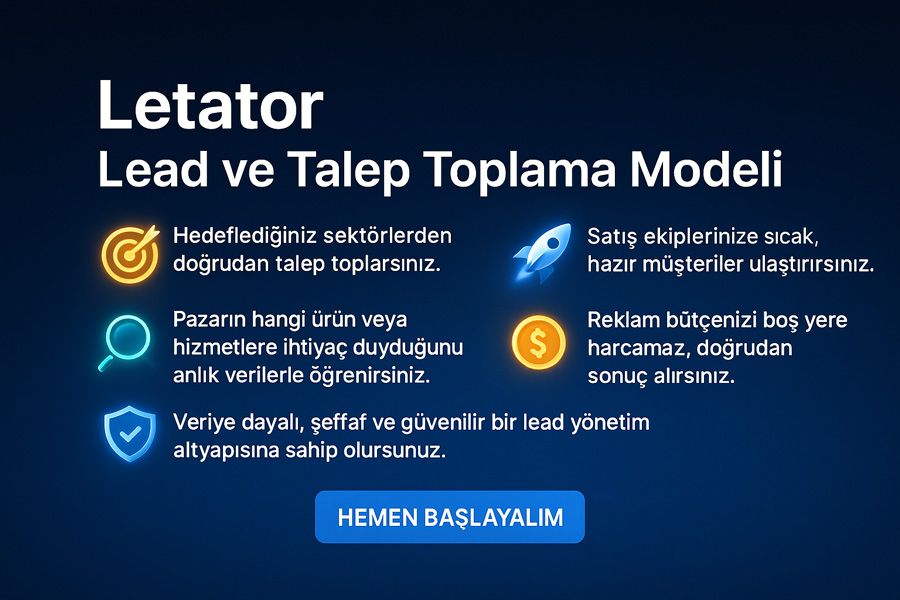Marketing automation is a software or platform used to manage and automate marketing activities. Marketing automation is designed to measure, analyze, plan and manage a company’s marketing activities.
Marketing automation can be used for many different marketing channels and often encompasses activities such as email marketing, social media marketing, website and search engine optimization (SEO). Marketing automation can be used to manage a company’s customer data, plan campaigns, segment target audiences, and track leads.
Marketing automation can also serve goals such as increasing customer loyalty, improving the customer experience, and creating customer-specific campaigns. In this way, companies can better manage their customer relations and establish a tighter bond with their customers.

İçindekiler
ToggleWhat is marketing automation used for?
Marketing automation is a software or platform that helps a company save time and achieve better results by automating its marketing activities. Marketing automation automates repetitive tasks, reducing human errors and allowing you to focus on strategic tasks.
When many people hear the term “marketing automation,” they often think of email marketing automation. However, marketing automation does more than just automate email campaigns. For example, marketing automation software can also perform tasks such as lead generation, nurturing and scoring, audience segmentation and targeting, upselling and cross-selling activities, customer loyalty and customer retention programs.
Marketing automation software also offers analytics and reporting features that help optimize marketing and content strategies. By doing A/B testing, you can identify headlines, quotes, text or images that work best. You can also build better customer profiles by enhancing customer data and improve customer experience (CX) by creating tailored, personalized experiences across channels. In this way, you can serve the customer better and increase the loyalty of your brand.
Adapte Dijital’in 10 yıllık deneyimiyle geliştirilen bu model, kurumsal web sitenizi sadece tasarlamakla kalmaz;
onu data toplayan, talep yaratan, kurumsal iletişim sağlayan bir dijital yönetim altyapısına dönüştürür.
Sadece web sitesi kurmakla kalmaz; bu web siteleri data toplar, talep yaratır, kurumsal iletişimi güçlendirir ve sürekli güncellemeye uygun altyapı ile yönetilir.
Marketing automation software can improve on:
- Lead generation, nurturing and scoring
- Audience segmentation and targeting
- Upselling and cross-selling activities
- Customer loyalty and customer continuity programs
- Analytics and reporting to optimize marketing and content strategies (i.e. edit topics or posting times)
- A/B testing lets you see which titles, quotes, text or images work best
Types of marketing automation software
Marketing automation software is designed for many different needs. Therefore, different definitions for marketing automation can be found in different sources. Some sources classify so-called “marketing automation tools” as marketing automation, which includes functions such as inventory management, pricing, distribution, revenue management, and competitor analysis.
However, there is a wide variety of categories among marketing automation software. Some of these are those:
- Customer Relationship Management (CRM) software manages customer, order and product data by automating sales processes.
- Sales Force Automation software manages and analyzes data by handling sales processes.
- Email Marketing software completely simplifies the email marketing process. These software offer many features, including setting up lead generation forms and various reports for tracking success.
- Social Media software automates many aspects of social media marketing such as content publishing, scheduling, monitoring and analytics.
- Marketing Automation Workflows software automates workflows by removing the human element from marketing processes.
- Lead Management software automates the generation, scoring and use of sales and marketing leads.
- Analytics software identifies patterns in market and customer data by displaying data visually.
- Pricing software is often used in the e-commerce environment and helps determine competitors’ pricing structures. It can offer features like A/B testing or demand forecasting.
- Digital Advertising and Promotion software automates the ad creation process and most of the bidding strategies in digital channels.
- Customer Loyalty software automates key components in promoting and managing loyalty programs.
Each marketing automation software can serve different purposes. Efficient Digital Model performs marketing automation management.

How does marketing automation software work?
Marketing automation software is used to automate marketing processes and increase efficiency. The software usually contains many different modules or components and these are often combined into one central platform. These modules can include many different tools such as email marketing, social media marketing, customer relationship management (CRM), sales process management, lead management and analytics.
Marketing automation software is primarily based on a system of rules and workflows that automates a series of processes based on a customer’s behavior. For example, when a customer signs up for an email campaign, the software can automatically send the customer a welcome email. Then, if the customer purchases an item in the offer, the software can automatically send a thank you email and a follow-up email with additional information about the item the customer purchased.
In this process, the software also records the customer’s movements and preferences and creates a customer-specific profile. This profile may include information such as the customer’s previous purchases, pages visited on the website, e-mails opened and clicked on, social media interactions. This profile can be used to create customer-specific marketing messages and offers.
Marketing automation software also provides a set of analytical tools to measure and analyze the performance of campaigns and messages. These analyzes can cover many different metrics, including open rates, click-through rates, conversion rates, sales efficiency, and many other metrics. This data can be used to improve campaigns and determine future marketing strategies.
Adapte Dijital’in 10 yıllık deneyimiyle geliştirilen bu model, kurumsal web sitenizi kurumunuzu/markanızı anlatan, tanıtan, güven yaratan, talep oluşturan bir dijital yönetim platformuna dönüştürür.
Adapte Dijital, bu modelde bir konumlandırma ajansı olarak çalışır. Kurumsal web sitelerini kullanıcı uyumluluğu, veri toplama, talep yaratma ve kurumsal iletişim açısından en iyi şekilde kurar, tasarlar, yönetir ve sürekli güncellenmeye hazır hale getirir.
In summary;
- Collecting data about leads through website visits, app usage, email clicks and other digital marketing interactions.
- Based on the collected data, relevant and useful content is created.
- Identifying, targeting and segmenting potential customers.
- Designing campaigns using potential customer segments and thus delivering personalized experiences across various digital marketing channels such as email, social, mobile and chat.
- Customer actions and predetermined timings trigger cross-channel workflows, performing two tasks: guiding customers through the sales funnel and/or educating them until they become marketing-qualified leads.
- Analyze and monitor results. Find out what isn’t working and make adjustments as needed to get more ROI from marketing.
You can benefit from the videos on the Youtube channel of Gürbüz Özdem, the founder of Adapte Digital.
How does marketing automation help marketers?
Marketing automation can help marketers in many different ways. Here are a few examples of how marketing automation can make it easier for marketers:
- Data Collection and Analysis: Marketing automation allows marketers to collect and analyze data on customer behavior, sales trends, and campaign performance. In this way, marketers can obtain more detailed information about their target audiences and create more accurate marketing strategies.
- Measurement and Optimization: Marketing automation helps marketers measure and optimize the performance of their campaigns. This way, marketers can identify which elements of their campaigns work best and where they need improvement.
- Personalization: Marketing automation allows marketers to have a more personal interaction with their customers. Marketers can create customized campaigns based on customers’ characteristics and behavior. This allows customers to respond more positively to marketing messages.
- Automation: Marketing automation saves time and resources by automating marketers’ routine tasks. Marketers can manage email campaigns, social media posts, and other marketing activities more efficiently by automating them.
- Sales Funnel Management: Marketing automation allows marketers to track and manage the customer journey. In this way, marketers can determine what stage customers are at and what marketing tactics should be used according to their needs. This helps create a more effective strategy for customer acquisition and retention.
Marketing automation enables marketers to work more effectively and efficiently, while delivering more personalized and relevant marketing messages to customers. Therefore, marketing automation is a critical set of tools for many businesses in today’s competitive marketing environment.
Marketing automation allows to bring more effective campaigns to market. However, it also eliminates the frustrating and trivial everyday tasks. These tasks include, but are not limited to:
- Planning campaigns in one system but looking at data in another system
- Dealing with customer histories stored for only a few months
- Don’t waste time finding leads that would normally be easier to find
- Cleaning duplicate records due to lack of integration with CRM system
- Working with IT to update and run campaigns
Performing these tasks manually wastes time, focus, and productivity. Eliminating this loss is one of the key aspects that marketing automation helps marketers with.

Advantages of marketing automation
Marketing automation has many advantages. Some of them are:
- Efficiency: Marketing automation automates manual processes, reducing employee time and effort. This speeds up business processes and provides greater efficiency.
- Personalization: Marketing automation helps you better understand your customers and provide them with a tailored experience. This may include the automatic creation of personalized content, the execution of targeted campaigns, and the analysis of customer behavior.
- More sales: Marketing automation helps increase sales by providing customers with a tailored experience at every stage of the sales cycle. In addition to increasing customer loyalty, this leads to better conversions at every stage of the sales funnel.
- Better customer management: Marketing automation helps you better manage your customers. By monitoring customer behavior, you can better understand your customers’ needs and improve their customer experience.
- Data analytics: Marketing automation collects, analyzes and reports customer data. This provides important data that your business can use in decision making.
- Cost savings: Marketing automation reduces the operating costs of your business by automating manual processes.
- Scalability: Marketing automation is easily scalable as your business grows, your customer count increases, or you add new marketing channels.
These benefits help your business make its marketing strategies more effective and efficient.
Marketing automation best practices
Marketing automation best practices are based on the planning and setup required to align automation with strategic goals. Some of these are those:
- Give importance to quality over quantity. Focus on quality in terms of tools used, leads achieved, and messages sent. In some cases, it’s better to have fewer tools when you’re trying to connect data across silos along the user journey.
- Create personalized customer journeys across channels. Respond to users quickly and in the context of their past behavior. This approach shows that you know and understand them. Marketing automation workflows facilitate rapid response to customer behavior while also handling lead scoring and sales enablement activities.
- Produce content that engages your target audience. If an asset actually works in a campaign, it can inform future content in terms of structure, bidding, and timing. Marketing automation provides insight into the performance of each piece of content. Thus, you can determine what generates returns.
Marketing automation best practices include:
- Content marketing: Marketing automation plays a huge role in content marketing strategies. It automates the processes of content creation, publishing, and distribution so that content becomes more interactive with customers.
- Segmentation: Marketing automation can segment customers based on demographic, behavioral, and other factors. This allows you to offer customers a more customized marketing experience.
- Email marketing: Marketing automation automates email marketing. This makes it easy to schedule, target, and personalize email submissions.
- Social media marketing: Marketing automation automates your social media accounts. This allows you to automatically post content, engage with followers, and monitor your social media performance.
- Lead management: Marketing automation automatically manages and directs your leads. This allows you to categorize customers by different stages, track customer journeys and increase customer conversions.
- Data analysis: Marketing automation helps you measure the performance of marketing activities. This allows you to identify which marketing activities are working well and which need more work.
- Sales management: Marketing automation simplifies sales management. It tracks the customer journey, monitors sales opportunities, prepares quotes and manages the sales process.
- A better customer experience: Marketing automation provides a better customer experience by tracking the customer journey and customer behavior. This allows customers to engage more, increase conversion rates, and increase customer loyalty.
Marketing automation tools and features
Thanks to the marketing tools that can be used as automation, you can improve your communication with your current and potential customers and increase your interaction.
Marketing automation tools and features include:
- Customer Relationship Management (CRM): It is software that collects, stores and manages customer data. This tool is used to better manage relationships with customers, increase sales and increase customer satisfaction.
- Email Marketing: Email marketing tools allow a company to plan, design, send and analyze email campaigns. These tools automate many aspects of the marketing process, saving you time and getting better results.
- Social Media Marketing: These tools allow you to manage your social media accounts, schedule, publish and analyze your content. Social media marketing automation tools increase your brand’s visibility, help you reach your target audience, and increase your follower count.
- Analytics: Marketing automation tools allow you to measure the performance of your marketing campaigns by presenting data visually. These tools help you identify which aspects of your campaigns are working well and which need improvement.
- Lead Management: These tools allow you to manage, categorize and track your leads. Lead management tools help your sales team communicate with customers more effectively and make the sales process more efficient.
- Content Marketing: Content marketing automation tools allow you to plan, produce, publish and analyze your content. These tools allow your content to spread more effectively and help you better understand your audience.
- Digital Advertising: Digital ad automation tools allow your ads to be created, published and analyzed. These tools enable better targeting of your ads, increase your conversion rates and increase efficiency.
Examples;
- customer.io
- HubSpot
- AdRoll
- pardot
- Constant Contact
- MarketoO
When is the best time to invest in marketing automation?
The optimal investment time in marketing automation may vary depending on the size of the business, marketing needs and budget. But often when a business considers setting up a customer relationship management (CRM) system or investing in a marketing automation platform that can be integrated with an existing CRM system, the best time is determined by the size of the customer base and the complexity of the marketing processes.
In marketing automation, platforms enable businesses to target customers, manage marketing campaigns and analyze data so businesses can make smarter marketing decisions. So, as a business’s customer base grows, there may be more reasons to invest in marketing automation.
Also, as a business’s marketing processes become more complex, they can become more difficult to manage manually and investing in marketing automation can become more efficient. However, since every business is different, it is important for a business to determine the optimal investment time considering its marketing needs and budget.
There are several questions to ask to determine if it is the right time to invest in marketing automation.
- Do you create and publish good content?
- Does this content match your customer’s journey?
- Is alignment between marketing and sales teams achieved when potential customers are referred? Do you know where marketing ends and sales begin in customer conversations?
- Do you have a steady stream of organic leads?
- Can you monitor your potential customers’ body language at every touchpoint and marketing channel?
But the most important question is: Are you ready to start scaling your marketing efforts? If the answer is yes, it’s probably time to invest in a marketing automation solution.
What Problem Does Marketing Automation Solve?
Marketing automation solves many of the problems marketing teams face. It is especially designed to increase the efficiency of marketing processes. Automate many marketing functions such as marketing automation, customer relationship management (CRM), sales processes, email marketing, social media marketing, lead management, pricing, advertising and promotion, customer loyalty, and other tasks that require marketing teams to spend more time and energy. allows you to focus.
Marketing automation helps marketing teams tackle the following problems:
- Data Management: Marketing teams often deal with large volumes of data. Marketing automation collects, stores and manages data. Thus, marketing teams can better target by gaining access to customer data.
- Repetitive Actions: Marketing automation automates repetitive work. In this way, marketing teams can devote their time to more valuable tasks.
- Low Conversion Rates: Marketing automation increases the effectiveness of marketing campaigns. For example, with better segmentation and personalization, marketing messages that engage customers can be prepared and marketing teams can target better.
- Appropriate Tracking: Marketing automation makes it possible to track the behavior of potential customers and send marketing teams customized messages based on these behaviors. This allows marketing teams to better respond to customers’ needs.
- Productivity and Collaboration: Marketing automation increases the efficiency of marketing teams and facilitates collaboration. Marketing teams can plan and manage campaigns and monitor results through an interface.
- ROI Management: Marketing automation provides analytical tools to measure the impact of the marketing budget. This way, marketing teams can track the return of campaigns and budgets for the future.
Marketing Automation Strategies
Marketing automation strategies are a set of tactics and approaches that a business can use to achieve its specific goals. Some common marketing automation strategies are:
- Lead Induction: A strategy designed to educate your potential customers to learn more about your brand and increase their level of interest. This strategy can help you attract potential customers who are interested in your brand’s product or service.
- Retargeting: A strategy that targets visitors who have visited your website but have not completed a purchase. This strategy is used to keep customers interested again and to follow up with them until the purchase is complete.
- Email Marketing: A strategy that involves using email to interact with customers, convert them into customers and build their loyalty. This strategy uses marketing automation tools to manage your customer data and send them personalized messages.
- Social Media Marketing: It is a strategy to promote your brand through social media channels and interact with customers. This strategy uses marketing automation tools to manage your social media accounts, post content, engage your followers, and attract leads.
- Sales Funnel Optimization: A strategy to improve customer experience and increase conversion rates at every stage of your sales funnel. This strategy uses marketing automation tools to identify your customers, track their interest levels, and personalize their customer experience.
- Analytics: You develop a strategy using analytics tools to measure and improve the performance of your marketing campaigns. This strategy uses marketing automation tools to monitor customer behavior and campaign performance, gain better understanding and optimize your marketing campaigns.
These marketing automation strategies depend on factors such as the success of a business’s marketing efforts, target audience reach, brand awareness, product or service sales, and customer loyalty. Marketing automation helps businesses make their marketing efforts more efficient by increasing many of these factors.
Marketing automation enables sending customized messages to the target audience by collecting and analyzing customer data. This increases brand awareness by reaching the target audience at the right time and with the right message, increasing the chances of converting potential customers into real customers.
Marketing automation makes it easy to create and manage campaigns across different channels used to promote products or services (e.g. email, social media, search engine ads, etc.). In this way, businesses can increase customer acquisition by presenting appropriate messages and offers in different channels.
Also, marketing automation helps businesses collect and analyze customer data. This data provides important information about customer behavior, preferences and needs and enables businesses to shape their marketing strategies in line with this information. This increases customer loyalty and provides an important advantage for the business.
Finally, marketing automation provides analytics and reporting tools to measure the effectiveness of campaigns. In this way, businesses can see how successful their marketing efforts are and can better plan their future strategies.


















































